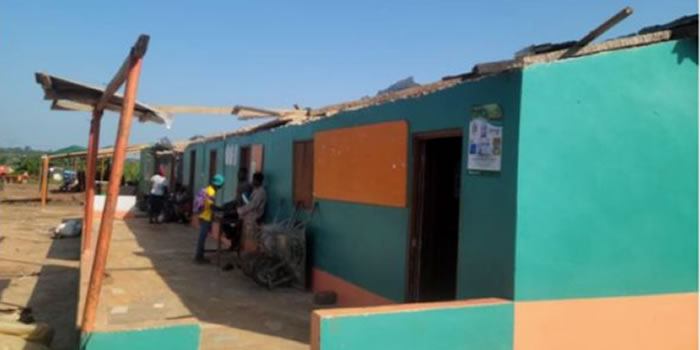

List of Projects
Propose Programmes and Projects
The District Assembly, in pursuit of its development objectives therefore, intends this year to continue to:-
- Develop basic economic, social and administrative infrastructure and services.
- Promote and support productive development and gainful employment as well as facilitate the development of the private-public partnership to improve the local economy.
- Support and sustain self-help initiative drive of Communities.
- Promote law, order, security and safety of the people and their properties.
- Promote good health delivery, environmental sanitation and preservation of the environment.
- Improve upon human capacity of the Assembly for more effective and efficient performance; etc.
Accordingly, it is proposed for implementation this year, depending on availability of funds, the following projects and programmes in the various sectors as follows:
Monitoring and Evaluation
Introduction
In plan implementation, monitoring and evaluation are considered inseparable. Monitoring and evaluation of projects and programme of activities within the planned period will be mainly undertaken by the District Planning Co-ordinating Unit (DPCU), and stakeholders (i.e. communities).
Monitoring
To ensure that input deliveries, work schedules, targeted output and other related actions are moving according to plan, there is the need to monitor the implementation of the plan. Monitoring is fundamentally concerned with measuring quantities of resources expended and to time in particular. A monitoring team will be formed to regularly supervise the progress of the plan. This will comprises selected members from DPCU, Chairman of works and Development sub-committees and community members.
Evaluation
With respect to the Ketu North plan, outcome evaluation would be carried out. This is because the routing monitoring of the various projects would be carried out till their respective final completion. The final report of the monitoring will fully monitor the results of the projects. Again, the time frame for the planned document (4 years) is highly limited to determine the impact of most projects.
The outcome evaluation will therefore assess the strengths and weaknesses of the project, based on the set indicators. This would be done to examine the level of positive benefits or effects generated by the end of the planned period and how they could be enhanced to achieve the ultimate goal of the District.
Proposed Levels of Monitoring and Evaluation
As a summary, three levels of monitoring and evaluation has been proposed to ensure effectiveness and efficiency in the process. These are community level monitoring, sub-District level monitoring and District level monitoring. The issues that will be incorporated are presented in the table below.
Re-Planning
The operationalization of every plan hinges on the ability to mobilize the necessary resources for implementation. The inability to raise adequate funds will therefore call for a strategy to identify alternate sources of funds for plan implementation. Some of these alternative sources include donor agencies; loans form financial institutions, mobilization from the community among others. Another alternative is to scale down the project through re-design and look out for possibilities for future funding of the project. If all these approaches fail, the project is dropped. The re-planning strategy therefore adopts a multi-faceted approach to resource mobilization to respond to the needs of the project to avoid out right termination.
Development Problems
Linking Harmonized Identified Development Problems/Issues to the Medium-Term Development Policy Framework, 2010-2013
Date Created : 11/20/2017 7:27:16 AM












 facebook
facebook
 twitter
twitter
 Youtube
Youtube
 +233 593 831 280
+233 593 831 280 0800 430 430
0800 430 430 GPS: GE-231-4383
GPS: GE-231-4383 info@ghanadistricts.com
info@ghanadistricts.com Box GP1044, Accra, Ghana
Box GP1044, Accra, Ghana